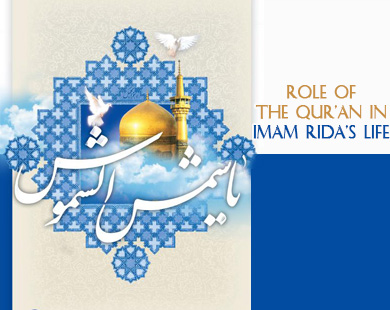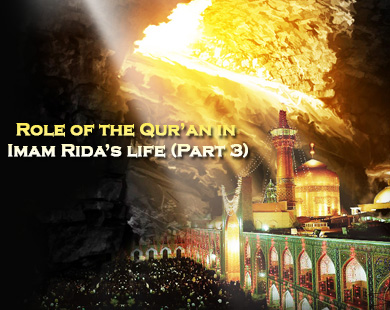Imamate is one of the basic beliefs (usool) which was the starting point for all the deep differences since the early period of Islam and immediately after the demise of the Prophet (p.b.u.h). The Muslim ummah, therefore, split into contradictory and contrasting sects due to the deepening of the gaps either due to the actions of the ruling authorities, or to personal ambitions aspired by some of those who coveted to be Imams.
There are two major schools of thought in Islam which are regarded as the stems from which those sects branch. They are the Sunni school of thought, which preaches that Imamate after the Prophet (p.b.u.h) was the right of Abu Bakr then to the three caliphs who succeeded him, and the Imami Shi'a school of thought which preaches that Imamate after the Prophet (p.b.u.h) was the right of Ali ibn Abu Talib (AS) and to his eleven descendants after him. Each of these schools has its own arguments regarding proving its authenticity and the lack thereof of the other.
The Ahl al-Bayt (AS) derive their arguments from clear and obvious statement in their regard said by the Prophet (p.b.u.h) and also due to their merits and qualifications which raised them above both common and elite individuals. Imam al-Rida (AS) explained to us the actual program to identify an Imam which agrees with the human nature in considering the distinctive merits and the sufficient qualifications present in a person to qualify for such a very important status.
Imam's Qualifications
In defining the qualifications of the Imam, Imam al-Rida (AS) tells us that he has to be the most knowledgeable among people, the most wise, the most pious, the most courageous, the most generous, and the best in worshipping God. These qualifications have to be present in the imam since he is the one charged with safeguarding the Islamic Message after the Prophet (p.b.u.h) and the one who clarifies its precise details and hidden meanings to people.
Selection of the Imam is Done by God
The Imam (AS) assured the person who inquired about these qualifications that the nation cannot be left to choose its imam without statements in this regard made by the Prophet (p.b.u.h) who in turn conveys God's commandments related to this issue, for nobody other than God knows the secrets of the individuals and what they hide inside their hearts.
The Imam (AS) said: "Do they really realize the significance of Imamate so that they permit themselves to make a choice in its regard? Imamate is greater in prestige, more significant, higher in status, more difficult to attain, harder to achieve, than can people conceive in their minds or define according to their views, or select an Imam as they please, for Imamate became the sole prerogative of Prophet Ibrahim (AS), the Friend of God, second in significance only to Prophethood, whereby He honored him, saying, `He (God) said, `I will make thee an Imam to the nations.'
He pleaded: `And also (Imams) from my offspring?!' He answered: ﴾But My Promise is not within the reach of evil-doers﴿ (Al Baqara:124). This verse, therefore, has nullified the imamate of any oppressor till the Day of Resurrection and became the prerogative solely of those elite persons.
God, thus, honoured Ibrahim (Abraham) by allotting Imamate to those of his progeny who are the elite and who are the Purified, saying, ﴾And We bestowed upon him Isaac and, as an additional boon, (a grandson), Jacob, and We made righteous men of everyone (of them). And We made them Imams guiding (men) by Our Command.﴿ (Al Anbiyaa:72-73) Imamate, then remained among the descendants of Ibrahim (AS), son inherited it from father, one century after another, till the Prophet (p.b.u.h) inherited it.
It was then when the Almighty God said to him, ﴾Without doubt, among men, the nearest of kin to Abraham are those who follow him as are also this Prophet and those who believe, and God is the Protector of those who have faith.﴿ (Aaali 'Imran:68) Thus, Imamate became the right of the Prophet (p.b.u.h) who, according to the commands of the Almighty God, and in the manner He deemed, vested it upon Ali (AS) and it settled among the elite of his descendants whom God gifted with the gift of knowledge and true belief."
The Imam (AS) continues to say: "Imamate is the status of the Prophets, the legacy of the wasis (successors of Prophets); Imamate is the caliphate of God Almighty and of His Messenger (p.b.u.h)."
"The caliphate of God Almighty" has to be the prerogative of the best of people after the Prophet (p.b.u.h) simply because he, the successor of the Prophet (p.b.u.h), is God's caliph on earth after the demise of the Prophet (p.b.u.h). His selection, therefore, has to be done by God for how can anyone judge anyone else to be eligible for it if he does not know that person's true inner self? We simply do not understand at all the wisdom of leaving the selection of the Imam to the nation without a final judgement in this regard coming from the Almighty...
An Imam's Attributes
Having defined the attributes an Imam has to have which represent his day-to-day conduct needed by people, Imam al-Rida (AS) says: "An Imam is a scholar who is not ignorant, someone who looks after others untiringly, the substance of sanctity and purity, asceticism and renunciation of the world, of knowledge and adoration.
His knowledge grows, his clemency is perfect; he is aware of the responsibilities of Imamate, knowledgeable regarding politics, commanding obedience, executing the Commandments of God, advising the servants of God, protecting the creed of God.
Prophets and Imams are assisted by God Who bestows upon them from the treasures of His knowledge and sovereignty in a way He does not endow anyone else, making their knowledge superior to that of anyone contemporary to them, for He, the Exalted and the Sublime, has said, regarding Talut (Samuel), ﴾God has chosen him above you and has gifted him abundantly with knowledge and bodily prowess; God grants His authority to whomsoever He pleases. God cares for all, and He knows all things.﴿ (Al Baqara:247) Regarding the Imams from the Household, progeny and elite descendants of His Prophet (p.b.u.h), the Ahl al-Bayt (AS), the Dear and Sublime One has said, ﴾Or do they envy mankind for what God has given them of His bounty? But We had already given the people of Abraham the Book and Wisdom and conferred upon them a great kingdom,﴿ (Al Nisaa:54) and when God selects one of His servants to deal with the servants of God, He broadens his heart for such responsibility, depositing in it springs of wisdom, inspiring knowledge to him."
Indications of Imamate
As regarding how an Imam can be identified, and what the indications are, this is explained by Imam al-Rida (AS) in his answer to the question someone put to him which was: "By what indication can Imamate be regarded authentic for one who claims it to himself?" He said: "By text and evidence." The man asked: "What is the characteristic of an Imam?" He answered: "Knowledge, and God's answer to his plea."
The man asked, "By what can you yourselves prove your Imamate?" He answered: "By a Promise made to us by the Messenger of God (p.b.u.h)." The man asked: "What is the evidence that you can tell what is on the mind of people?" He answered: "Have you not come to know that the Messenger (p.b.u.h) said, `Beware of the discretion of a mu'min for he looks through the light of God'?" The man answered in the affirmative, so the Imam (AS) continued saying, "Every believer has a share of discretion, looking through the light of God according to the amount of his belief and the extent of his foresight and knowledge.
God has combined in us what He has distributed to all the believers combined and said in His Book, ﴾Behold! In this are signs for those who by tokens do understand.﴿ (Al Hijr:75) The first of these mutawassimeen is the Messenger of God (p.b.u.h), then the Commander of the Faithful (AS) after him, then al-Hassan then al-Hussein, then the Imams from among the descendants of al-Hussein till the Day of Judgement."
By all of these statements does Imam al-Rida (AS) define for us the qualifications of an Imam and the group that chooses him in statements which agree with the human nature and the balances of reason which are the final judge on such issues.




















